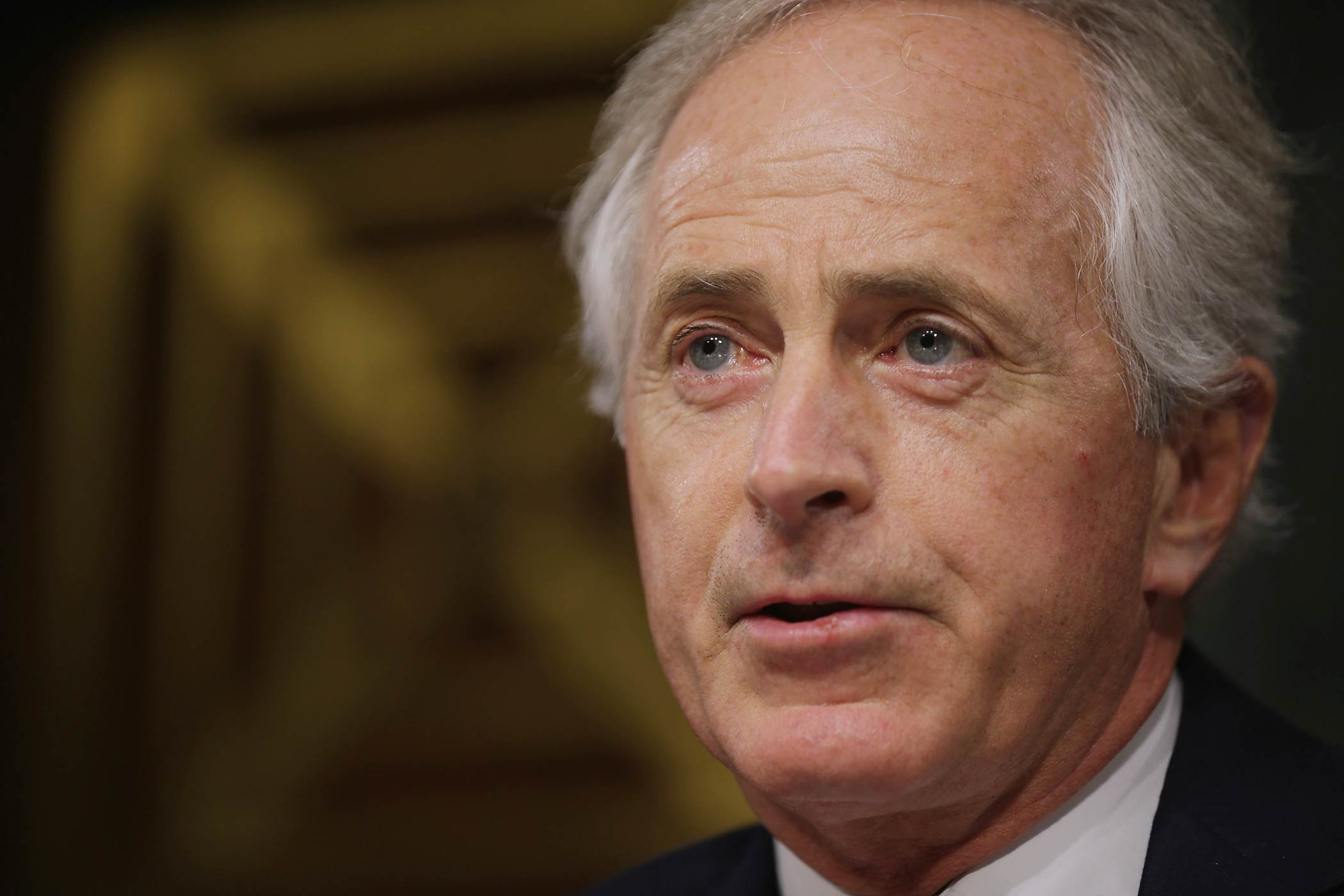
Sen. Bob Corker’s presidential campaign never really got off the ground, but then it’s not clear that it was supposed to.
Last summer, the Tennessee Republican let it be known in certain circles that he was mulling a run for the White House, leading to a nice profile in the Beltway publication National Journal (“Is Bob Corker Running for President?”) and a slightly more skeptical take from the Associated Press, which gave away the game in the second paragraph:
If Corker joined the race, he would face fellow Republicans with much higher national profiles. He also hasn’t taken any clear steps to organize, fundraise or make appearances in early primary states — typically the first signs of a potential campaign testing its reception.
Then, on Monday, Corker came clean, telling a Nashville public radio station that he’d prefer to stay in the Senate after all. In all, his imaginary presidential campaign lasted seven months and 13 days and consisted of a handful of headlines. So what’s the point?
A while back, I coined a term for this phenomenon: the sham-paign. It’s a mostly imaginary campaign designed to boost the supposed candidate’s public profile and lead to favorable news coverage for a short while, possibly stoking the flames for an actual run down the road.
A few key signs: The candidates are not household names, they drop lots of brazen hints about a potential run (real candidates play coy), they’re the only one talking about a run and they never file any paperwork or take any concrete steps, such as visiting Iowa or New Hampshire.
It’s too soon to tell which of the longshot candidates flirting with a 2016 bid are running sham-paigns yet. But in the months to come, expect to see a few more come to a similar end as Corker.
Just like an opened bottle of champagne, a sham-paign goes flat pretty quickly.
More Must-Reads from TIME
- Cybersecurity Experts Are Sounding the Alarm on DOGE
- Meet the 2025 Women of the Year
- The Harsh Truth About Disability Inclusion
- Why Do More Young Adults Have Cancer?
- Colman Domingo Leads With Radical Love
- How to Get Better at Doing Things Alone
- Michelle Zauner Stares Down the Darkness
Contact us at letters@time.com